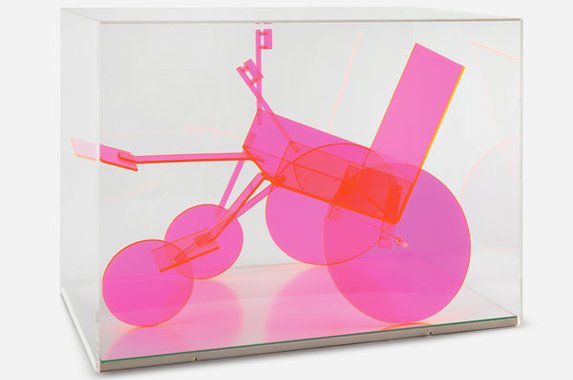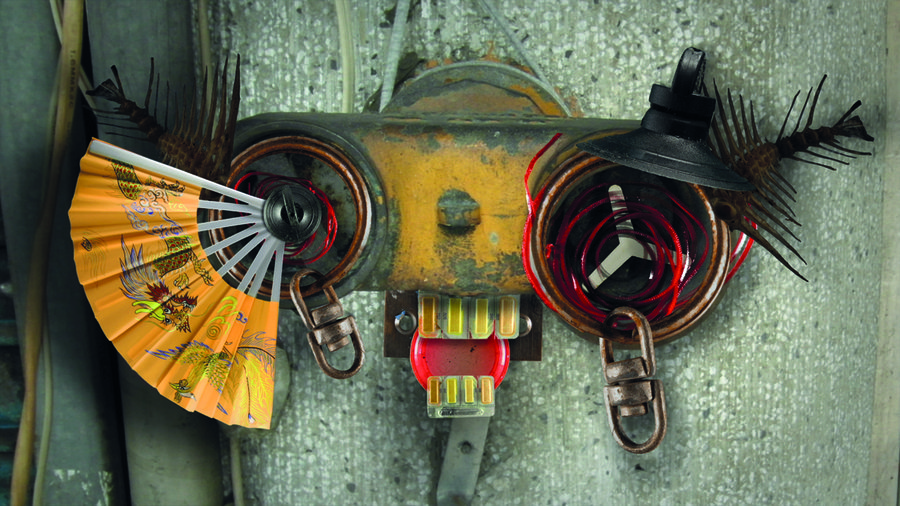Richard Saltoun Gallery presents the first solo exhibition in the UK dedicated to one of the most radical artists of our time: Austrian feminist artist Renate Bertlmann (b. 1943, Vienna).
Described as 'phallus-addicted' by her peers in the 1970s, Renate Bertlmann's provocative art practice has historically made her the subject of criticism - despite her active participation in feminist discourse. Her inclusion in the major exhibition, Museum des Geldes (Museum of Money) (1978), resulted in audience members calling for the removal of her work and for the artist to be prosecuted - the show toured to the Van Abbemuseum, Eindhoven, and the Centre Pompidou, Paris, both which refused to exhibit her work. Her more recent inclusion in the Gwangju Biennale (2014); The World Goes Pop at Tate Modern (2015-2016) and her solo exhibition at the Sammlung Verbund, Vienna, has been to critical acclaim - finally placing her as one of the leading feminist artists of the 20th century.
The exhibition at Richard Saltoun Gallery will showcase three of Renate's most controversial works: Rollstuhl (rot-groß) [Wheelchair (red-big)](1975); Uravagina (1978) and Bru(s)tkasten [Breast incubator] (1984). These works, exhibited alongside vintage photographs and drawings from the 70s, illustrate her unique sensitivity to material and female tropes.
Rollstuhl (rot-groß) [Wheelchair (red-big)] (1975), a full-size replica of a wheelchair made of shocking neon pink Perspex was inspired by Thomas Benrhard's play Ein Fest für Boris [A Party for Boris] (1968). The artist references human limitations and the fragility of the psyche through her distinct rendering of the object in shocking neon: 'if we have to lean down slightly to shake hands, we often have a feeling of a kind of embarrassed and helpless shame. Disability puzzles and shocks us.' (Renate Bertlmann)
Bertlmann's references to literature and art history is subtly played out again in the mathematical formalism of her 10-part work Urvagina (1978). Narrow strips of moulded latex hang from ten square boxes installed on the wall, each with a lancet shaped opening: ten umbilical cords representing the universal power of women and their creative potential. The installation echoes the formal seriality of minimalism, but subverts it by the tactility of the latex nubs, each pooling on the ground below.
The exhibition culminates in Bertlmann's 'protest-object' Bru(s)tkasten [Breast incubator] (1984): two moulded clay female breasts (encased in an 'incubator'). Confronting the idea of female vulnerability by adding a knife to each nipple but at the same time an expression of female power, rejecting the breast as a fetish.
Biography
Renate Bertlmann is a leading feminist artist active since the 70s in Vienna. Her work focuses on representations of sex, love, and relationships, with her body often serving as the artistic medium. The artist transforms herself according to stereotypes of femininity and masculinity: the pregnant woman, the model, the masturbating man. Bertlmann was included in the radical feminist exhibition MAGNA. Feminismus curated by VALIE EXPORT in 1975, Vienna. In 2016 Prestel published a comprehensive monograph, edited by Gabriele Schor and Jessica Morgan. Recent exhibitions include: Amo Ergo Sum, Sammlung Verbund (Vienna, 2016); The World Goes Pop, Tate Modern (London, 2015); Burning Down the House, Gwangju Biennale (Gwangju, 2014).

